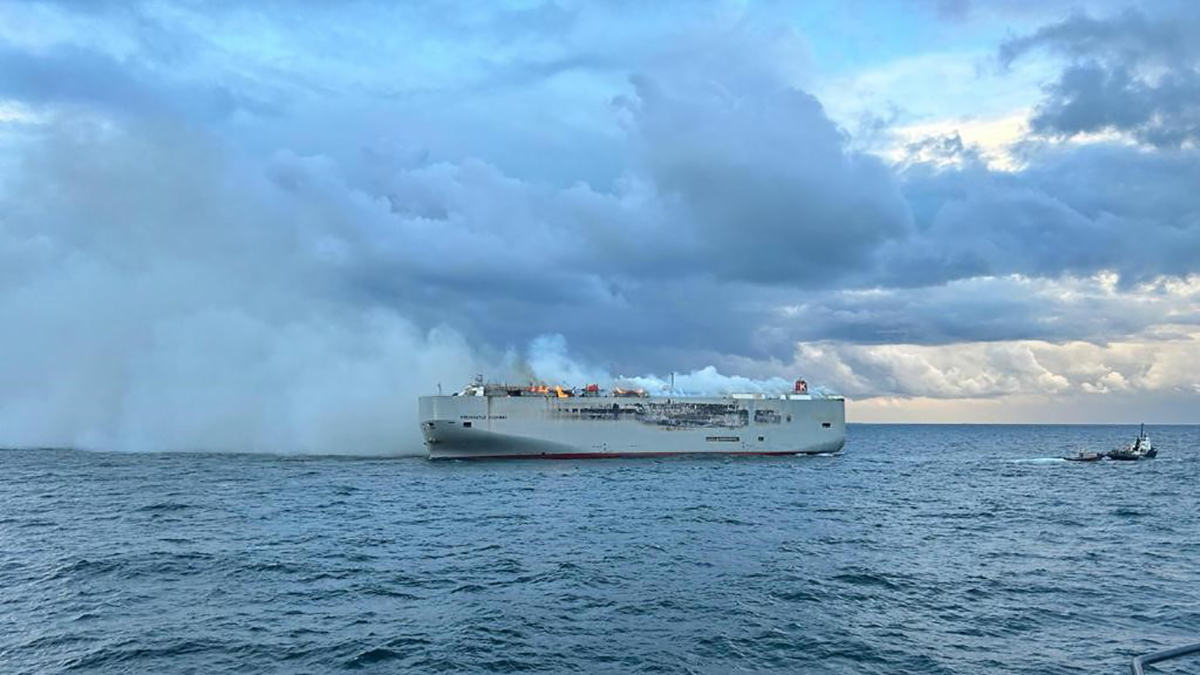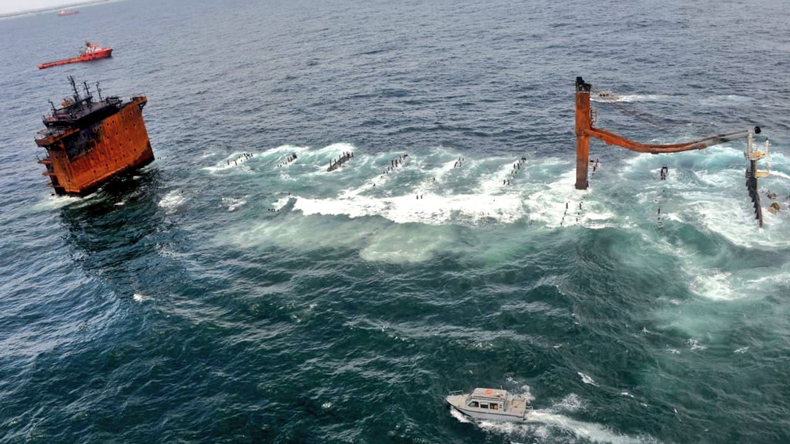Maritime incident under-reporting is a recurring issue
'Serious' incidents involving the loss of a vessel, significant environmental harm, death, or a combination, are not being adequately reported to IMO specifications
The IMO’s Maritime Safety Committee has recently adopted new reporting requirements for containers lost at sea, which are due to take effect in January 2026
Throughout the International Maritime Organization (IMO)’s history, disasters or trends in disasters beget regulation.
The clamouring from environmentalists, coastguards, and insurers on the issue of container loss is no exception – the IMO’s Maritime Safety Committee has recently adopted new reporting requirements for containers lost at sea, which are due to take effect in January 2026. These changes include requirements for vessels to report lost containers and could boost the quality of data we can expect as an industry.
Changes to the International Convention for the Safety of Life at Sea (Solas) include changes to the Global Integrated Shipping Information System (GISIS) to accommodate new reports from both ships’ masters and flag states, as well as requirements to report drifting containers to nearby ships and coastal states.
Reporting detail changes include the following:
-
For containers lost: reports made as soon as possible, including updates; final counts of lost containers; position and descriptive information on containers lost, including if any dangerous goods were lost; and voluntary details as deemed relevant.
-
For drifting containers found: position and total number of containers; and any other voluntary details, including descriptors/conditions.
The intention of the changes is to introduce more accountability for lost containers, hopefully preventing negative environmental impacts, reducing the likelihood of vessel collisions with floating containers, and alerting coastal states to potential debris in or near their waters for tracking and planning. Despite the best intentions from the IMO, these reporting-forward changes are unlikely to close container loss reporting gaps completely when considered alongside existing casualty reporting deficiencies.
Under Solas, incidents must be reported and, if considered “serious”, must be investigated by the flag state. Even with mandatory reporting requirements, under-reporting of marine casualties remains a significant industry problem – the IMO has acknowledged there have been “serious gaps” in casualty reporting and investigations over time.
There have been small improvements – Lloyd’s List reported on a 12% bump in materialised reports over the four years leading up to July 2024 – but the ultimate outcome is that “serious” incidents involving the loss of a vessel, significant environmental harm, death, or a combination, are not being adequately reported to IMO specifications.
The onus is on the vessel operators and owners to report, and in cases where there are no injuries or damage to a vessel (as there may not be in the case of shipping container losses) incidents may go unreported to protect records and prevent expensive insurance rate hikes, and to limit other operational and reputational costs.
Many flag states also have limited ability to conduct investigations, owing to a combination of resources, volume of reports, or external pressures.
According to Lloyd's List Intelligence (LLI) research, nearly 40% of very serious casualties do not result in a flag state investigation being published and mandatory reports required under the casualty investigation code often fail to meet basic reporting standards.
When incidents result in cargo loss of any kind, the self-reporting does not get any better. In the past 10 years, LLI has captured more than 2,500 incidents involving container vessels through our network of Lloyd’s agents and marine casualty correspondents. The number of containers damaged or lost from these incidents is much harder to quantify.
The World Shipping Council, which exclusively tracks shipping container losses, stated an estimate of 221 containers lost in 2023, with 33% recovered. While LLI would produce a similar figure, we generally understand this to be an under-estimate. Some years have seen significant single incidents with confirmed container losses, such as the MOL Comfort (IMO: 9358761), which lost more than 4,300 containers in June 2013. However, in many cases the exact number of containers lost is not reported.
Reporting requirements are changing at a time when the actual conditions for container losses are also worsening – the Maritime Research Institute Netherlands reported in July 2024 that the causes for container losses are directly dependent on the laden-state of the vessel, distribution of weight, adequate lashing/storage and, most critically, weather/wave conditions.
With the Intergovernmental Panel on Climate Change predicting increasingly violent storm conditions, weather systems, and swells due to climate conditions, it is possible we will see a spike in container losses over the coming years, all due and required to be reported via new standards/forms to the IMO.
With the head of cargo in the IMO’s maritime safety division, Alfredo Parroquin-Ohlson, telling the Associated Press, “We cannot be a police,” it’s unclear how fundamentally these new regulations will change public container loss reporting, even in the face of changing conditions at sea.
However, with environmental groups, shipping safety experts, and insurers themselves crowing for change, it is certainly a step in a more transparent direction for container losses.
Sabrina Edwards is maritime editorial data manager at Lloyd’s List Intelligence


